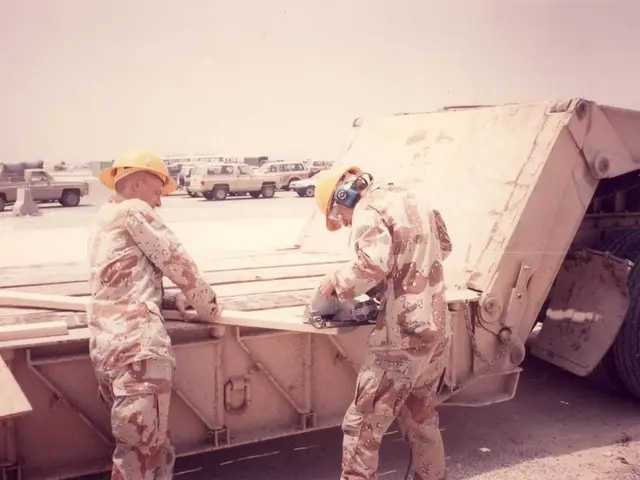Sudan mired in civil conflict since 2023, experiencing the globe's most severe humanitarian crisis.
In Sudan, a humanitarian catastrophe of epic proportions is unfolding, according to the United Nations. The troubled nation, one of Africa's largest, is witnessing a brutal struggle between two military commanders, each vying for control of coveted resources.
The conflict, now in its third year, pits Abdel Fattah al-Burhan, the head of the regular army, against Mohamed Hamdan Dogolo, the leader of a paramilitary force with allegations of war crimes against him, dating back to Darfur 20 years ago.
Estimates suggest that over 150,000 lives have been lost and 13 million people have been displaced since the war's inception, with eight million on the brink of famine. The fighting parties are contesting territory the size of three times France, causing the front line to frequently shift. This dynamic has exacerbated the humanitarian crisis in the country.
Hundreds of thousands of people have been displaced in recent weeks, with many experiencing multiple rounds of displacement. For instance, South Sudan has been hit hard, seeing an influx of approximately 200,000 refugees between January and March of this year, elevating the already critical refugee situation in the region.
Overwhelmed border camps in north Darfur and neighboring Chad, already strained, are struggling to provide essential services like food, medicine, and shelter to tens of thousands of refugees. Young children and pregnant women are among the most vulnerable, as they often arrive with gunshot wounds and are crossing borders without parents.
According to humanitarian organizations, the crisis far outstrips their capabilities to respond. People are dying of thirst, being summarily executed while fleeing, and enduring malnutrition and disease outbreaks, including measles. Medical facilities are being pushed to their limits, leaving many in dire need of emergency care with no help available.
There are also concerns of a hunger crisis looming, as living conditions deteriorate further due to destroyed infrastructure and disrupted aid supply chains. Despite a lack of formal famine declarations, conditions in besieged areas such as El Fasher and Darfur warrant such a designation.
On the military front, the Sudanese Armed Forces (SAF), led by Abdel Fattah al-Burhan, have made some incremental progress against the Rapid Support Forces (RSF) since mid-May 2025. They have regained control of parts of central and northern Sudan, as well as the capital, Khartoum. However, the RSF has stepped up its use of drones to target SAF-controlled infrastructure, such as ports, airports, fuel storage facilities, and power stations in response to losing Khartoum.
Key conflict hotspots continue to be El Fasher (North Darfur), where the RSF conducts targeted assaults, shelling, drone strikes, and ground operations, causing hundreds of civilian casualties. Elsewhere, including El Obeid and Omdurman, RSF attacks may have resulted in dozens of civilian deaths and extensive infrastructure damage.
In summary, Sudan is grappling with unprecedented levels of violence and displacement, extremely heightened risks of famine, and the collapse of essential services. Despite the SAF's gains in some areas, RSF drone attacks are causing disruptions on an industrial scale, adding further hardship to civilians already suffering in the ongoing conflict.
Unrest in Sudan's politics, driven by war-and-conflicts between military commanders, has escalated into a general news crisis of tremendous proportions. This conflict, now in its third year, has resulted in over 150,000 deaths, displaced 13 million people, and threatens millions more with famine, particularly young children and pregnant women.






